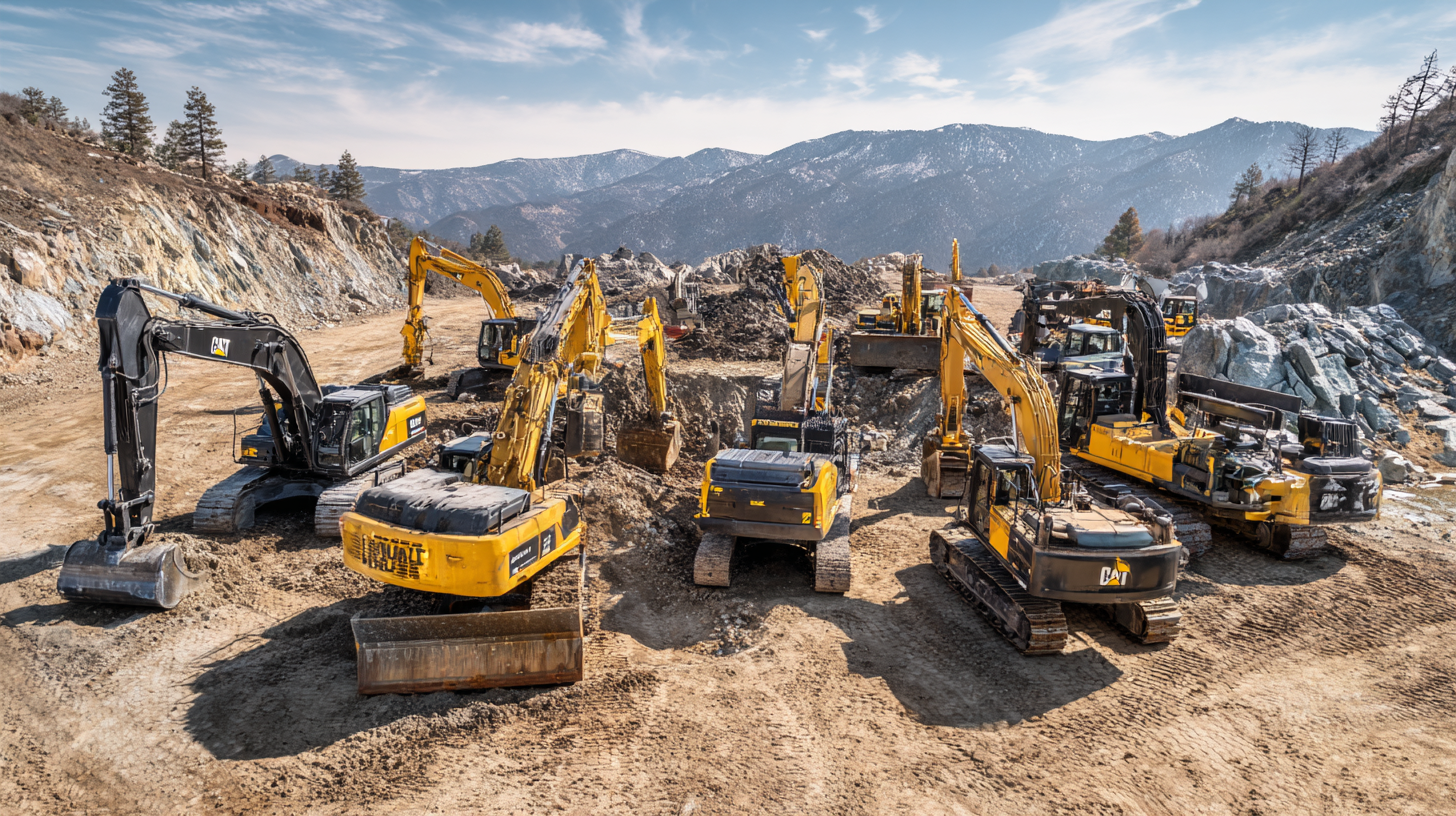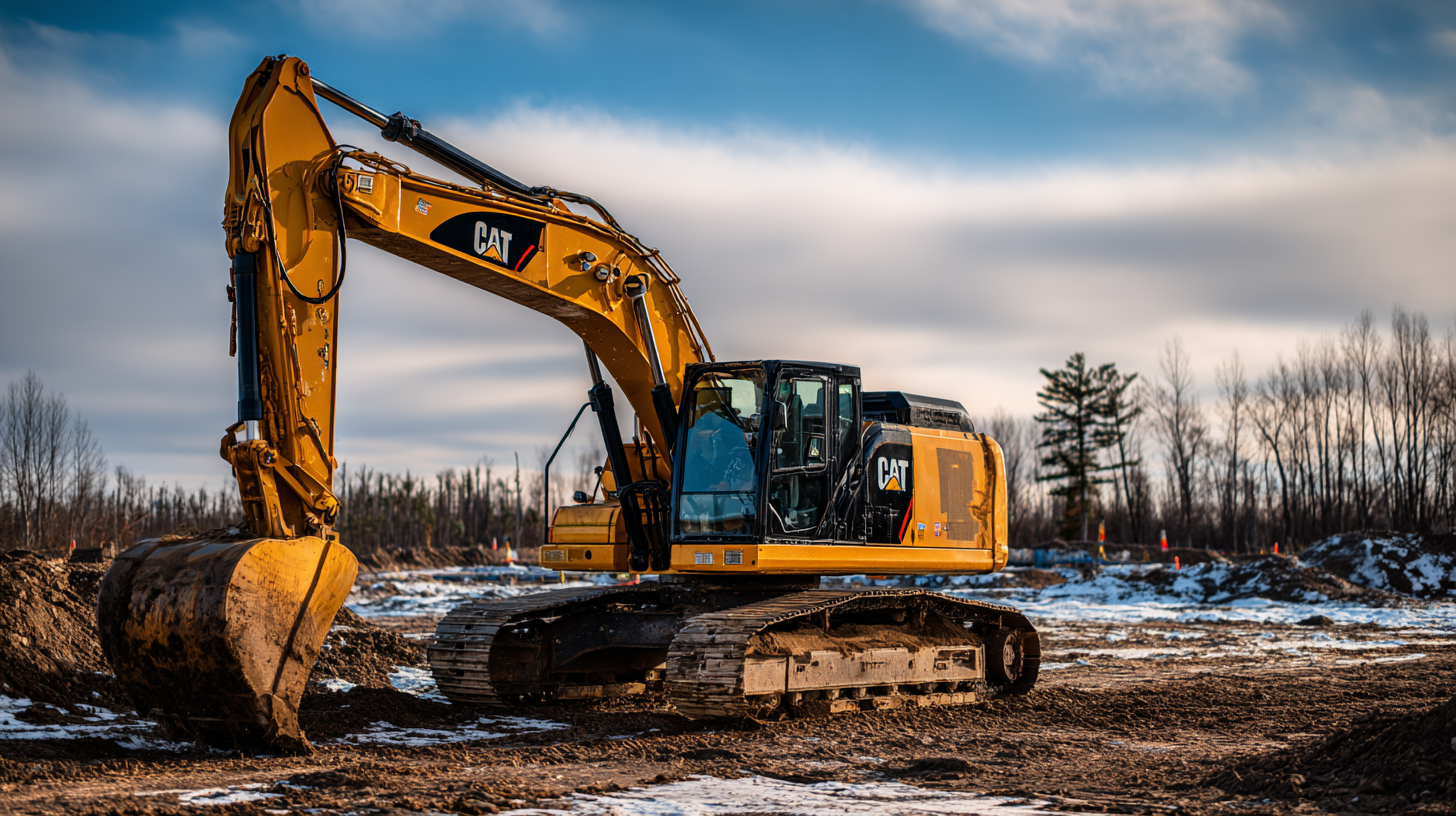Leave Your Message
- Phone
- E-mail
- Whatsapp
In today's fast-paced construction landscape, buyers of Local Excavators face an array of challenges as they navigate a highly competitive market. According to a report by IBISWorld, the construction machinery rental and leasing industry's revenue has shown steady growth, reaching $10 billion in 2022, highlighting the increasing demand for high-quality excavators. Furthermore, with the global excavator market anticipated to grow by 4.4% annually, it's crucial for buyers to understand the intricacies of sourcing and comparing local options effectively. Factors such as equipment availability, pricing strategies, and service support significantly influence purchasing decisions. As contractors seek the best local excavators to meet project deadlines and budget constraints, understanding these challenges becomes essential in making informed decisions that enhance operational efficiency and project success.

Navigating the competitive landscape of local excavator suppliers can be daunting for buyers. With a plethora of options available, distinguishing quality excavators from subpar machines is often a significant challenge. Many local suppliers may offer similar products, making it crucial for buyers to assess the reliability and performance of the equipment.
One effective tip is to conduct thorough research on the suppliers. Look for customer reviews and testimonials that highlight the performance and durability of their excavators. Additionally, visiting the suppliers in person allows buyers to inspect the machines firsthand, ensuring that they meet the necessary specifications and standards.
Another important aspect to consider is the level of after-sales support offered by the supplier. A reputable supplier should provide comprehensive maintenance services and readily available parts. Therefore, prioritize suppliers that offer warranties and robust customer service to ensure peace of mind regarding your investment in an excavator.
Ultimately, taking these steps can significantly improve your chances of finding a high-quality excavator that meets your operational needs.
 In today’s competitive market for local excavators, pricing strategies play a crucial role in influencing buyer decisions. Buyers often face a complex landscape of pricing options, from budget-friendly models to premium machines that promise higher efficiency and durability.
Buyers must navigate not just the upfront costs but also consider factors such as long-term value, maintenance expenses, and resale potential. A well-structured pricing strategy can not only attract new customers but also create loyalty among existing ones by demonstrating value beyond just cost.
In today’s competitive market for local excavators, pricing strategies play a crucial role in influencing buyer decisions. Buyers often face a complex landscape of pricing options, from budget-friendly models to premium machines that promise higher efficiency and durability.
Buyers must navigate not just the upfront costs but also consider factors such as long-term value, maintenance expenses, and resale potential. A well-structured pricing strategy can not only attract new customers but also create loyalty among existing ones by demonstrating value beyond just cost.
Moreover, promotional strategies can heavily impact buyer perception. Discounts, financing options, and limited-time offers can generate urgency and encourage buyers to make quicker decisions. However, these strategies must align with the overall brand positioning; overly aggressive pricing may lead to perceptions of inferior quality.
Establishing a balance between competitive pricing and perceived value is essential for suppliers of local excavators to effectively meet the diverse needs of buyers while maintaining profitability in a saturated market.
When purchasing excavators, buyers are often overwhelmed by the competitive landscape and the multitude of options available. However, one critical factor that can significantly influence their decision-making process is the quality of customer service provided by dealers. According to a recent report from the Construction Equipment Association, 73% of buyers stated that customer service played a pivotal role in their purchasing decision. This highlights the necessity for manufacturers and dealers to prioritize exceptional service to stand out in a saturated market.

To enhance customer experience, it’s essential for buyers to engage with service teams that not only demonstrate technical expertise but also provide ongoing support post-purchase. Research indicates that companies with effective customer service strategies can see a customer loyalty increase of up to 24%. Hence, when researching potential excavator dealers, potential buyers should inquire about their service level agreements and after-sales support options.
Tips for a better buying experience include asking about customer service response times and ensuring regular maintenance services are offered. Additionally, seeking reviews and testimonials from previous customers can provide insight into the level of support you can expect. Investing time in understanding the customer service approach of your prospective dealer can lead to a more satisfying and successful excavator purchase.
In today's competitive market, evaluating the reputation of local excavator dealers is crucial for buyers seeking reliable machinery. The landscape is crowded with options, making it imperative for potential customers to discern which dealers stand out. Buyers should focus on factors such as customer reviews, years of operation, and service history. A dealer’s reputation can often be reflected through testimonials and case studies, which provide insight into their reliability and customer satisfaction levels.
Moreover, engaging with community forums and industry groups can offer valuable information about specific dealers. Networking with other professionals who have previously purchased excavators can shed light on personal experiences, which can be more telling than online reviews. Understanding warranty options and after-sales service can further assist buyers in making informed decisions.
As the market grows more competitive, establishing a solid understanding of dealer reputations becomes an integral part of the purchasing process, ultimately ensuring that buyers choose the best local excavator that meets their needs and expectations.
Navigating the financing options available for purchasing excavators locally can be a daunting task for buyers in a competitive market. With numerous choices available, it’s crucial to understand the various financing methods—each comes with its own set of advantages and pitfalls. Traditional bank loans are often the go-to choice, providing substantial funds at competitive interest rates. However, the eligibility criteria can be stringent, making it essential for buyers to have a solid credit score and comprehensive financial documentation.
On the other hand, renting or leasing excavators offers an alternative for those who may not want to commit to a full purchase. These options often require lower initial capital outlay and can be more manageable for businesses looking to keep cash flow flexible. Financing options through dealer-sponsored programs also present a viable route; these often include promotional rates or deferred payments, which can ease the financial burden during the initial operating period. Regardless of the chosen method, buyers must carefully assess their long-term needs and financial capabilities to navigate this competitive landscape effectively.
